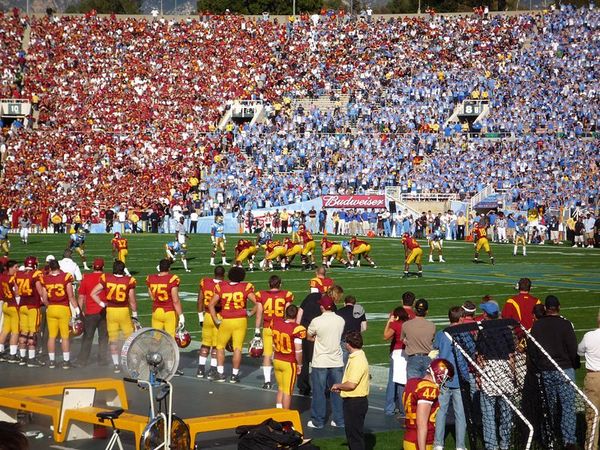Pac-12’s concerning financial conditions create uncertainty for programs' future
Last updated July 8, 2022

The Pac-12 is trailing behind other conferences when it comes to matters related to money. Nevertheless, it prevails as one of the most successful conferences in college sports, being responsible for over 500 NCAA championship runs and winning 56 titles in the country over the past 62 years.
Despite the outstanding feat, the Pac-12 Conference failed to prevent the departure of the USC Trojans and UCLA Bruins to the Big Ten, who left due to financial constraints. The reason was the lack of media rights deals in the Pac-12, which has set forth uncertainties to the conference’s financial future.
Uncertainty awaiting Pac-12’s future
Development to revive the conference has been slow. While many college athletics insiders praise commissioner George Kliavkoff, it is uncertain how he will work his way around the Pac-12’s concerning financial performance.
The problem has been developing for years, and the recent departure of two programs made matters more difficult for other schools at the conference. According to Smith College economics professor Andrew Zimbalist, the main problem that the Pac-12 has been dealing with is the declining number of revenue sources.
"You have exploding costs on one end, and your revenue sources are being decimated, which is a tremendous pressure," Zimbalist said. "On the other hand, what do you do? Well, something pretty radical, I think, is going to have to happen."
Aside from its crippling financial problem, the Pac-12 also has been sending fewer football teams to play in the national championship playoffs. The most recent was in 2017 when the Washington Huskies successfully made it to the bracket. An early sign of the conference’s declining dominance was in 2015 when the Oregon Ducks were eliminated from the championship game.
The conference’s basketball programs made similar performances throughout the years, with fewer teams making it through the Final Four. Oregon represented the conference in 2017, and UCLA in 2021.
"In the old days, USC and UCLA would be right up there at the top of the national football heap every year, and they've fallen way down," Zimbalist added. "And so you need some fill-up, some boost to get them to a point where they can really be a strong, strong franchise again — and I just don't see that."
Lack of media rights deal
These problems have been affecting media rights deals in the Pac-12, and the decision made by former commissioner Larry Scott to establish the conference’s own network made things worse.
Scott pushed the Pac-12 to roll out its very own network, and in the process, forewent media deals with well-established networks such as ESPN, Fox, and others. The idea was to provide a self-sustaining conference-specific network, ensuring that the conference could soak in every bit of financial awards from airing college sporting games.
However, The Pac-12 Network never worked as Scott intended. The network busted down after failing to reach an agreement with DirecTV. The Pac-12 Network never achieved the expected monster-size TV ratings, let alone reaching millions of college athletics fans.
These problems gave rise to an unforgiving financial disability that restrained its moneymaking ability. Compared to the SEC and Big Ten, the Pac-12 distributed the least amount of money to programs, only paying its members $19.8 million in 2021. Meanwhile, the SEC paid $54.6 million to schools, and Big Ten cashed out $46.1 million.









